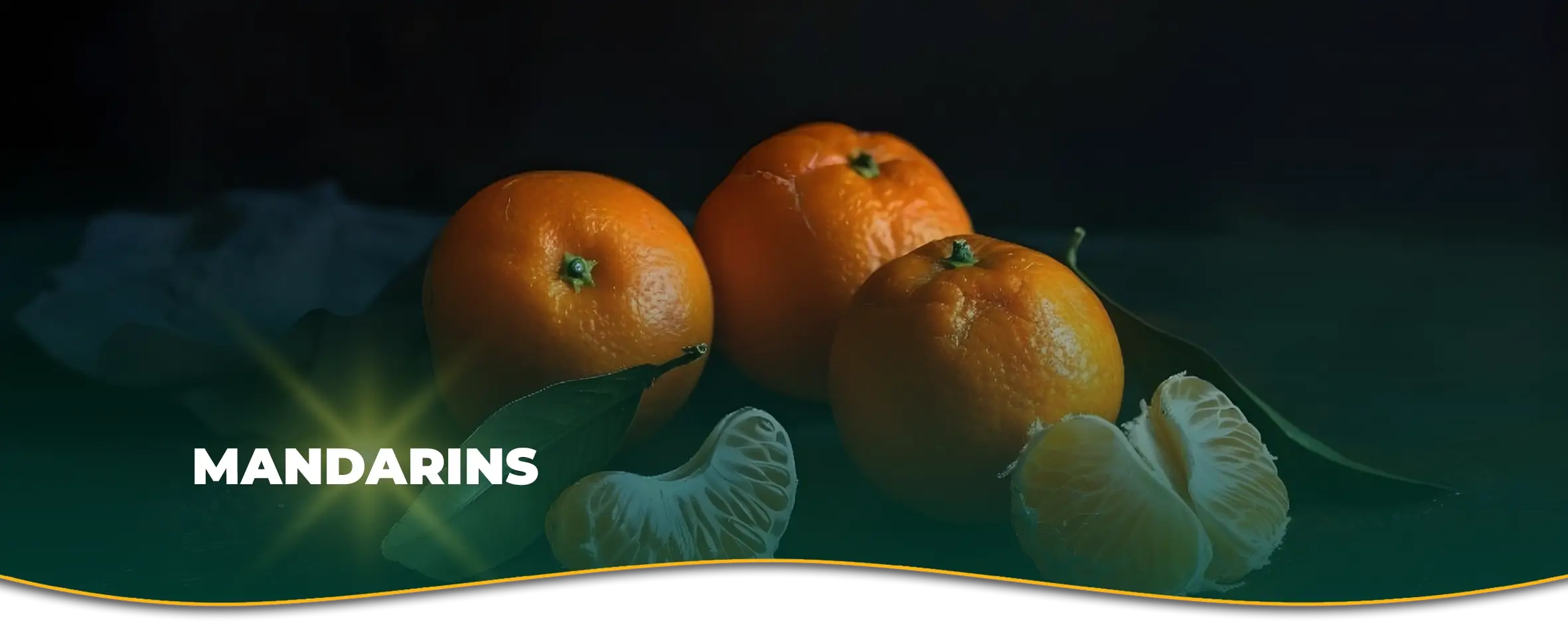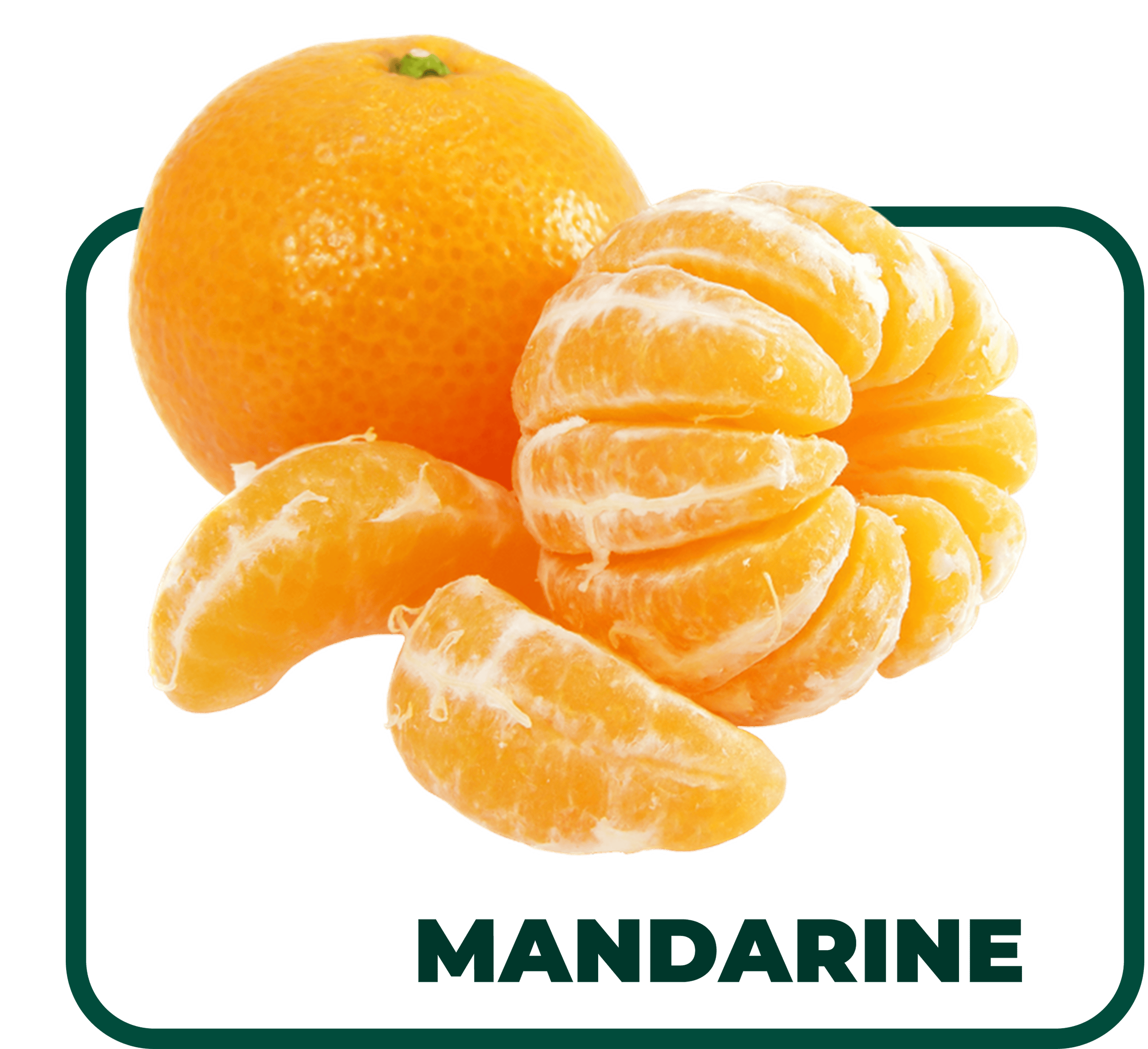
Mandarins
Egyptian mandarins are a juicy and aromatic citrus fruit known for their sweet flavor and vibrant color. Grown in the sun-drenched orchards of Egypt’s fertile soil, these mandarins are prized for their easy-to-peel skin and succulent segments. The favorable climate and rich soil of Egypt contribute to the mandarins’ exceptional taste, smell, and quality, it is a popular choice both locally and for export.

Mandarins are a powerhouse of nutrients, offering numerous health benefits. They are an exceptional source of vitamin C, which plays a remarkable role in boosting the immune system and promoting healthy skin. Mandarins also provide dietary fiber, which aids in digestion and helps maintain a healthy weight. Additionally, they contain potassium, which helps heart health by supporting to regulation of blood pressure. The antioxidants found in mandarins, such as flavonoids, help protect cells from oxidative stress and support overall well-being.
Eating Egyptian mandarins can positively impact your body in several ways. It contains vitamin C that enhances immune function, helping to fend off illnesses and infections. The fiber in mandarins supports digestive health by promoting regular bowel movements and preventing constipation. The potassium in mandarins helps maintain healthy blood pressure levels and supports cardiovascular health. Furthermore, the antioxidants in mandarins contribute to reduced inflammation and protect against chronic diseases, making mandarins a refreshing and healthful addition to your diet.
Mandarins are typically planted in the early spring or late winter, depending on the specific region within Egypt. They thrive in well-drained soil with plenty of sunlight and a moderate climate. The fruit starts to develop in the spring and is usually ready for harvest in late autumn to early winter. In the harvest season from November to January, mandarins are carefully packed to ensure they are ripe and bursting with flavor. Then the fruit is prepared for distribution.
